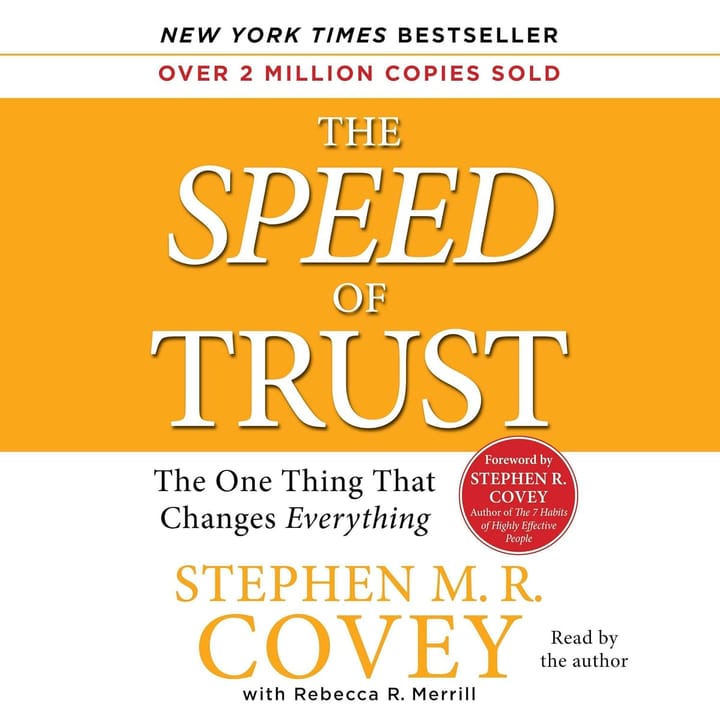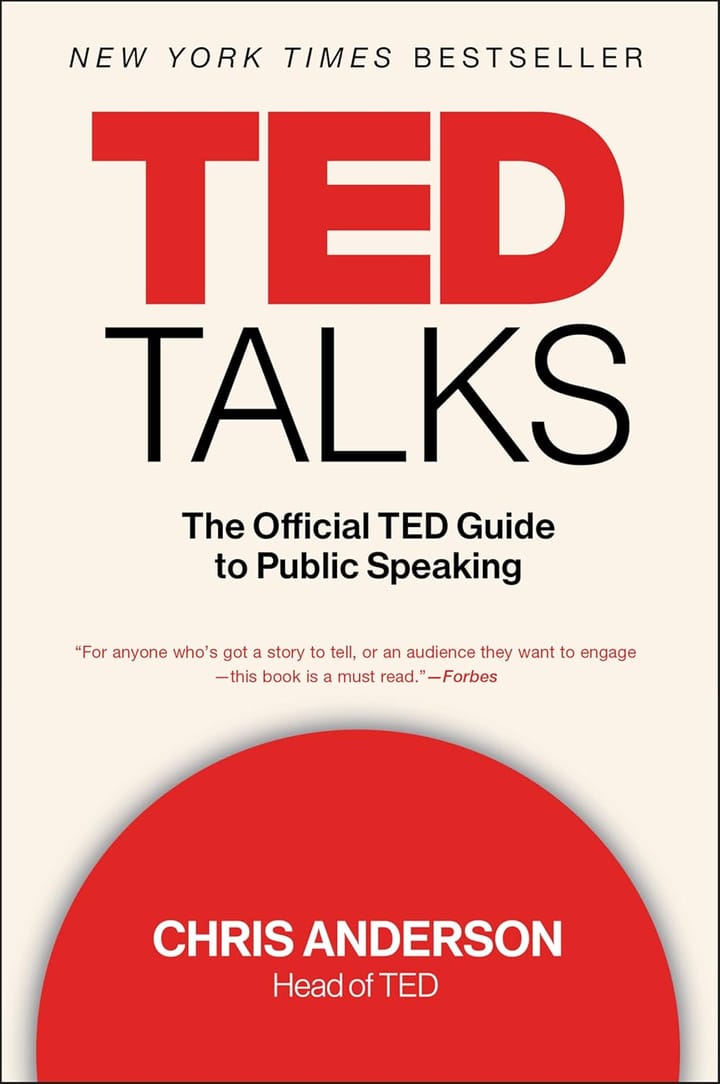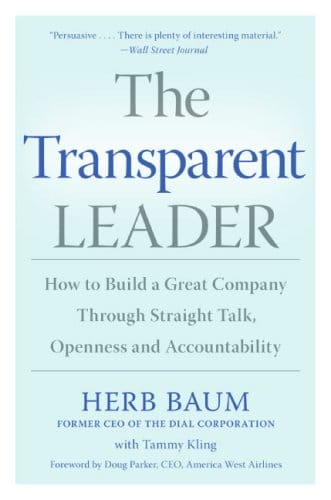Book Summary: You're Not Listening
Discover the key insights from "You're Not Listening" by Kate Murphy in this informative book summary article that explores the art of listening.

Essential Insights
- Listening is a skill that is undervalued in today's society.
- Technology has hindered our ability to truly listen to others.
- Active listening can improve relationships and overall well-being.
Introduction to You're Not Listening
You're Not Listening by Kate Murphy is a compelling exploration into the art of listening, written by the esteemed journalist Kate Murphy. In this enlightening book, Murphy delves into the importance of listening in our daily lives and the profound impact it can have on our relationships, work, and overall well-being. With insightful anecdotes and practical advice, Murphy guides readers on a journey to understand the value of truly listening and the consequences of failing to do so.
For individuals seeking to enhance their leadership skills and personal development, You're Not Listening offers invaluable lessons that can significantly transform how they engage with others. By underscoring the power of listening in communication and relationship-building, Murphy's book provides a roadmap for cultivating stronger connections, fostering empathy, and becoming a more effective leader. Readers will not only gain a deeper understanding of the nuances of listening but also acquire practical strategies to improve their listening skills and enhance both their personal and professional lives.
Buy "You're Not Listening" on Amazon
Summary of You're Not Listening
You're Not Listening explores the essential yet often overlooked skill of listening in our everyday lives. Kate Murphy argues that listening is an art that has declined in the age of constant communication and technology, where people frequently prioritize speaking over truly engaging with others. The book emphasizes that effective listening goes beyond just hearing words; it involves understanding emotions, perceptions, and thoughts. By honing this skill, individuals can enhance their relationships, foster deeper connections, and develop a greater sense of empathy in both their personal and professional lives.
What sets You're Not Listening apart is its blend of research, personal anecdotes, and practical advice. Murphy draws on various studies and interviews, illuminating how individuals in different fields—such as healthcare professionals, journalists, and educators—appreciate the value of listening. The author encourages readers to reflect on their listening habits and offers concrete strategies to improve them. This approach not only highlights the significance of listening but also empowers readers to take actionable steps toward becoming more attentive communicators.
Several key points resonate throughout the book, including the idea that listening can bridge gaps between differing viewpoints and reduce misunderstandings. Murphy discusses how actively listening cultivates trust and respect, establishing a foundation for meaningful interactions. As you read further, you'll uncover how mastering the skill of listening opens the door to enhanced leadership qualities and personal growth, making it a vital area to explore for anyone seeking to improve their communication and influence.
Key Lessons From You're Not Listening
The Importance of Active Listening
In You're Not Listening, Kate Murphy emphasizes the impact of active listening as a vital skill for meaningful communication. This approach involves fully concentrating on what others are saying rather than merely waiting for one's turn to respond. Murphy illustrates this concept by sharing anecdotes of individuals who felt unheard in conversations, leading to feelings of isolation and frustration. The stories serve to highlight how prevalent this issue is in everyday interactions.
The significance of embracing active listening cannot be overstated. By truly engaging with the speaker, one creates an environment where trust and understanding flourish. This can lead to more profound connections and reduce conflicts in relationships. As readers consider their communication habits, they may recognize instances where they could improve their listening skills for better interpersonal dynamics.
Incorporating active listening into daily life can create a substantial shift in how individuals relate to others. By making a conscious effort to engage fully in conversations, readers can foster deeper relationships both personally and professionally. This practice encourages empathy and respect, paving the way for personal growth and improved communication skills.
Overcoming Distractions
Murphy addresses the pervasive issue of distractions in modern communication, particularly those stemming from technology. She discusses how the constant presence of smartphones and social media can hinder genuine connection. For instance, she recounts moments when people are distracted by their devices during crucial conversations, leading to misunderstandings and a lack of connection.
This lesson is especially relevant in today's fast-paced world, where distractions can fragment attention and weaken interpersonal bonds. Murphy's exploration of this subject reveals that minimizing distractions is essential for fostering meaningful discussions. Readers may recognize their habits and how interruptions affect their relationships, prompting a desire to adjust their behaviors.
The Value of Vulnerability in Communication
A significant theme in You're Not Listening is the role vulnerability plays in effective communication. Murphy illustrates that sharing personal thoughts and feelings can invite deeper discussions, as she discusses instances where openness led to more honest dialogue. These moments emphasize that vulnerability is not a weakness; rather, it can be a powerful catalyst for connection.
Empathy as a Listening Tool
Application Ideas for You're Not Listening
Practice Active Listening
One of the key lessons from You're Not Listening is the importance of active listening. This goes beyond just being quiet while someone else speaks; it involves truly engaging with the speaker. To implement this, take the time to focus entirely on the person speaking. This means putting away distractions like your phone or computer, maintaining eye contact, and using affirming gestures that show you are present. Instead of preparing your response while they talk, concentrate on understanding their message and feelings.
Active listening can be applied effectively in both personal and professional settings. For example, during team meetings, give each speaker your full attention and ask follow-up questions that demonstrate your engagement. This practice promotes a culture of respect and collaboration, making every team member feel valued. When people know they are being genuinely listened to, they tend to participate more fully and confidently.
To ensure you practice this effectively, try setting specific listening goals for yourself, such as summarizing what the other person has said before responding. Additionally, consider establishing rules for meetings where participants commit to active listening. This small shift can create a more open dialogue and lead to more productive discussions. A scenario illustrating this could be a manager who implements 'listening rounds' in team meetings, where every team member shares their update, and everyone else practices summarizing their points, fostering a supportive environment.
Ask Open-Ended Questions
Another actionable step from the book is to ask open-ended questions rather than leading or closed ones. Open-ended questions encourage deeper conversation and invite the other person to elaborate on their thoughts and feelings. For instance, instead of asking, "Did you like the presentation?" you could ask, "What aspects of the presentation resonated with you?" This shift not only shows you care about their opinions but also opens the door to richer dialogue.
In leadership roles, encouraging open-ended questions can be particularly powerful. It can help gauge team morale or elicit feedback on a project more effectively. By fostering this kind of communication, leaders can gain a better understanding of their team's needs and ideas, which can lead to more innovative solutions and improved morale.
To make this practice easier, prepare a list of open-ended questions tailored to various situations, whether they be professional meetings, one-on-one conversations, or social gatherings. This preparation can help you steer conversations in a more meaningful direction. A practical example arises during a project debrief where the leader asks team members, "What challenges did you face during the project?" rather than simply asking if they encountered any issues. This approach can lead to more constructive feedback and solutions.
Create Safe Spaces for Dialogue
Murphy emphasizes the significance of creating safe environments for conversation. Individuals are more likely to share freely when they feel secure and valued. To foster this, actively encourage open dialogue in your personal and professional circles. This could mean eliminating hierarchical barriers in discussions or actively soliciting input from quieter team members.
In practice, leaders can take steps to ensure that meetings begin with a reaffirmation of respect and trust, indicating that everyone’s voice matters. This approach not only strengthens team cohesion but also enhances overall engagement. When participants feel comfortable, they are more willing to share their ideas, leading to more innovative outcomes.
To ease this implementation, consider employing techniques such as anonymous feedback tools or regular check-in sessions that allow team members to bring up concerns without fear of backlash. A real-world scenario illustrates this where a team leader establishes 'feedback Fridays' that allow team members to express their opinions on the week’s events in a casual and judgment-free format, prompting ongoing dialogue.
Be Intentional About Your Listening Habits
The final actionable idea is to become intentional about your listening habits. Observe how you listen in different situations and strive for improvement. Reflecting on your listening skills may reveal areas where you tend to interrupt or get distracted, which can be remedied by consciously reminding yourself to behave differently in future conversations.
Incorporating check-ins with yourself after conversations can be a useful tactic. Ask yourself what you learned, if you interrupted, or how you could have listened more effectively. In professional environments, this reflective practice can enhance leadership capabilities, making you more aware of your responses and the effects they have on others.
To support this endeavor, keep a listening journal where you note your experiences and thoughts on conversations you engage in throughout the week. This reflective practice may reveal patterns in your listening habits. As an example, a manager could maintain such a journal and find they tend to rush through feedback sessions, prompting them to slow down and create a more collaborative and thoughtful approach moving forward.
Concluding Thoughts
You're Not Listening by Kate Murphy highlights the vital role that listening plays in our daily lives, emphasizing that this skill is often neglected in a world dominated by rapid communication and technology. The book makes a compelling case for why effective listening extends beyond merely hearing words; it involves a deeper understanding of emotions, thoughts, and perceptions. By mastering this art, individuals can significantly enhance their relationships, fostering empathy and connection in both personal and professional realms.
Murphy's work stands out due to its combination of research, personal stories, and practical strategies. She brings to light the ways professionals in various fields value listening, while also prompting readers to scrutinize their listening habits. This reflection, alongside the actionable advice provided, empowers readers to become more engaged communicators. By doing so, they can bridge divides, cultivate trust, and reduce misunderstandings in their interactions. The book explores several points about listening, including the necessity of active engagement, overcoming distractions, and embracing vulnerability. It highlights how these concepts not only improve communication but also facilitate personal growth.
Readers are encouraged to incorporate techniques like active listening, asking open-ended questions, and creating safe spaces for dialogue into their daily lives. Each of these strategies serves to deepen relationships and foster a more empathetic environment. Murphy stresses the importance of empathy as a vital tool in the listening process. By actively seeking to understand the emotions and experiences of others, readers can enrich their conversations and resolve conflicts more effectively. This commitment to empathy and connection can yield profound benefits in both personal and professional contexts. As you consider the lessons shared in the book, recognize the potential for profound change in your interactions. By practicing the listening skills outlined by Murphy and committing to improvement, you can create more meaningful connections, enrich your relationships, and enhance your overall communication abilities. I invite you to explore You're Not Listening further and incorporate its teachings into your life. Start by making small adjustments in how you engage with others.
Challenge yourself to listen actively, ask open-ended questions, and create safe spaces for dialogue. These steps can lead to deeper understanding and stronger connections with those around you. Embrace the challenge and join the movement toward becoming a more attentive and empathetic listener. Your efforts can lead to transformative experiences that impact not only your life but also the lives of those you engage with.
Related Topics
- Communication Skills: Developing effective ways to convey information and ideas to others.
- Active Listening: Engaging fully with a speaker by showing understanding and empathy through verbal and nonverbal cues.
- Relationship Building: Cultivating strong connections with others through effective communication and attentive listening.
- Psychology of Human Connection: Exploring the emotional and cognitive factors that influence interpersonal relationships and bonding.
Reflection & Discussion Questions
Reflection is a powerful tool for personal growth and leadership development. Whether you're exploring your own experiences or engaging in thoughtful group discussion or team training, reflection questions help uncover new insights, clarify values, and inspire meaningful action. Below are questions designed to deepen your understanding of the concepts taught in You're Not Listening, and facilitate constructive conversations with your team or group.
- How can you practice active listening in your daily interactions?
- What strategies can you employ to reduce distractions and focus on listening more effectively?
- How can vulnerability enhance your communication with others?
- What role does empathy play in developing meaningful connections with people?
- How can you create safe spaces for open dialogue in your personal and professional relationships?
- What steps can you take to be more intentional about your listening habits?
- How can active listening improve your relationships both personally and professionally?
- How can you incorporate open-ended questions into your conversations to encourage deeper dialogue?
- What impact can active listening have on team dynamics and collaboration in your professional setting?
- How can vulnerability lead to more honest and authentic discussions with others?
- What benefits can empathy bring to your interactions and relationships with others?
- How can you encourage open dialogue and feedback within your team or organization?
- What changes can you make to create a more attentive and supportive listening environment?
- How can reflecting on your listening skills help you become a more effective leader and communicator?
- What lessons can you draw from the book to enhance your communication skills and influence those around you?
Recommended Reading
Below are a few recommended books related to concepts taught in You're Not Listening.
- The Art of Communicating by Thich Nhat Hanh. This book offers insights on how to cultivate mindful conversations and connect with others on a deeper level.
- Talking to Strangers by Malcolm Gladwell. Malcolm Gladwell explores the ways humans often misinterpret the words and actions of strangers, leading to misunderstandings and conflict.
- Crucial Conversations: Tools for Talking When Stakes Are High by Kerry Patterson, Joseph Grenny, Ron McMillan, and Al Switzler. This book provides strategies for having difficult conversations effectively and managing emotions during high-stakes interactions.
Frequently Asked Questions
How can I become a better listener?
To become a better listener, it's important to practice active listening by giving your full attention to the speaker, maintaining eye contact, and asking open-ended questions to show genuine interest in what they have to say. It's also helpful to avoid interrupting or immediately giving advice, allowing the speaker to fully express themselves. Additionally, be mindful of your body language and nonverbal cues to show that you are engaged in the conversation.
What are the consequences of not listening?
The consequences of not listening can be profound and far-reaching. When we fail to listen to others, we risk damaging our relationships, missing out on important information, and decreasing our ability to empathize with others. This can lead to misunderstandings, conflicts, and a general sense of disconnection from those around us. By not listening, we also limit our own personal growth and hinder our opportunities for learning and understanding different perspectives.
How can I become a better listener?
To become a better listener, it is important to practice empathy, focus on the speaker, and avoid interrupting or offering unsolicited advice. By actively listening and showing genuine interest in what the speaker is saying, you can create a stronger connection and foster deeper, more meaningful conversations.
Why is listening so important in today's digital age?
Listening is crucial in today's digital age because technology has made it easier for people to share their thoughts and opinions with others. However, it has also led to a decline in true listening. With the distractions of smartphones, social media, and constant connectivity, people are often more focused on responding or waiting for their turn to speak rather than actively listening to what someone else is saying. In order to truly connect with others and build strong relationships, we must prioritize listening and give others our full attention.
Buy "You're Not Listening" on Amazon
Affiliate Disclaimer
Some of the links on this website may be affiliate links. This means that, at no additional cost to you, we may earn a commission if you click through and make a purchase. Your support through these affiliate links helps sustain and improve the quality of the content we provide.



